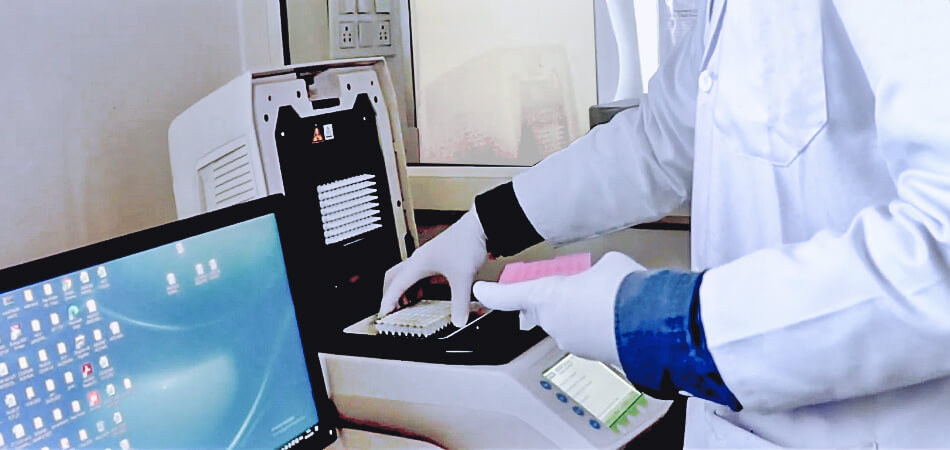
Hepatitis is frequently caused by a virus. Hepatitis means loss of function in the liver. When the liver is an essential organ that processes nutrients, filters the blood, and fights infections.
What is Hepatitis?
Hepatitis is frequently caused by a virus. Hepatitis means loss of function in the liver. When the liver is an essential organ that processes nutrients, filters the blood, and fights infections. The liver is inflamed, and then is also affected. Excessive consumption of alcohol, toxins, overdoses of some drugs/ medication, and certain medical problems. The most common Hepatitis viruses are Hepatitis A virus, Hepatitis B virus, Hepatitis C virus, Hepatitis D virus, and Hepatitis E virus. Here we focused on Hepatitis C.
What is Hepatitis C with its etiology?
Hepatitis C is also referred to as HCV. Hepatitis C is a blood borne virus that also attacks the Liver then it can cause Hepatomegaly (Enlarged Liver/ Liver Swelling), and cirrhosis (scarring of the liver). HCV is commonly described as “Acute (Short Term infection) and Chronic (Long-term Infection)”.If you feel the symptoms of HCV are listed below; you could contact the nearby pathology lab, Ganesh Diagnostic which is a 24-hour open pathology lab. Excessive alcohol consumption, toxins, drug/medication overdose, and specific medical conditions can cause Hepatitis C.
Note: Acute infection also leads to chronic symptoms such as Liver damage, Cirrhosis, Liver Cancer (Hepatocellular Carcinoma), and life-threatening.
Other Name: HCV Viral Load, HCV PCR Quantitative, HCV RNA PCR, HCV RNA PCR Quantitative Test, HCV RNA Real-Time PCR Quantitative Test
Abbreviation: HCV: Hepatitis C Virus, PCR: Polymerase Chain Reaction, RNA: Ribonucleic acid.
Who is at Risk of Hepatitis C?
The following people are at increased risk for hepatitis C:
- HCV is transmitted through blood or any body fluid (even in microscopic amounts) that enters a healthy person.
- Sharing infected (HCV) equipment such as needles (syringes, tattoos, body piercings).
- Received Blood transfusion or organ transplantation from who has HCV.
- Have been on long-term kidney dialysis.
- Were born to an Infected Pregnant Woman.
- Unprotected Sexual contact with an infected person.
Note: Hepatitis C is not transmitted through sharing eating utensils, breastfeeding, hugging, kissing, holding hands, coughing, sneezing, or consuming food or water.
“There is no effective Vaccine for Hepatitis C Virus”
Symptoms of Hepatitis C
The following symptoms may occur with HCV infection:
- Pain in the right upper abdomen.
- Abdominal swelling due to fluid (Ascites)
- Clay-colored or pale stools.
- Dark urine
- Fatigue
- Fever
- Itching
- Jaundice
Exams and Tests
To check the HCV test we perform various methods through Blood
- ELISA (Enzyme-Linked Immunosorbent Assay) to detect HCV Antibodies.
- PCR through measuring the viral load and identifying the positivity of HCV.
What is the procedure for the Hepatitis C RNA Real-Time PCR Quantitative Test?
Appointment: Book an appointment in advance to avoid waiting and confusion.
- Pre-diagnosis
- Patients directly book their test online
- Sampling: A blood sample will be taken in an EDTA Vial (Purple) from the patient's arm and there is no precaution required for this test. This procedure is done by a phlebotomist
- The expert will take all the details regarding the Patient (Travel History, Medical Record, Family History, etc.)
- Then patient's sample will be transported for diagnosis with the proper manner of labeling in a sample collection box with 2 to 4OC temperature.
Free Home Sample Collection Available
- Post-diagnosis
Sample processing by highly skilled laboratory technologists under the guidance of Doctors.
The Hepatitis C Virus is RNA virus which means it has a single strand.
RNA Extraction: From the Patient sample, we collected RNA by using various Molecular Techniques (Genetix HT 96 Purifier Machine, Genetix 32 Purifier Machine)
Quantitative Real-Time PCR: After extraction, then amplified the sample by using the PCR method. The real-time PCR method ( Truelab Quattro Real-Time Quantitative PCR Machine, CFX96 Bio-Rad Real-Time PCR Machine, Truelab® Uno Dx Real-Time Quantitative Micro PCR Analyzer) monitors the amplification process.
Interpretation of Results: The quantitative method defines the quantity of virus means how much level of viral load is there also indicating whether or not HCV RNA was detected.
What does the HCV Quantitative Real-Time PCR test result mean?
Positive Result: Indicates the presence of HCV RNA in the sample with viral load.
Negative Result: Indicates that there is no detectable HCV RNA in the sample.
The report is authenticated by Doctors.
Requirement for the HCV Quantitative Real-Time PCR Testing: There is no requirement required.
Cost of HCV Quantitative Real-Time PCR Test
The cost of this test varies from lab to lab. The best place to get this test done is affordable rates for the public at Ganesh Diagnostic and Imaging Centre. You can also available a FLAT 50% discount.
HCV Quantitative Real-Time PCR test at Ganesh Diagnostic and Imaging Centre
- Ganesh Diagnostic and Imaging Center is accredited by the National Accreditation Board for Testing and Calibration Laboratories (NABL) certified lab for HCV Quantitative Real-Time PCR Testing.
- NABL accreditation reflects the capability of laboratory infrastructure, technical staff, and High-tech equipment based on national and international standards.
- Ultra-modern machines such as a Bio-Rad Real-Time PCR machine, a fully closed Truelab Quattro Real-Time Quantitative PCR Machine, and a Genetix HT 96 Purifier Machine.
- Doctor Consultation: Free Doctors Consultation
- Accurate and accessibility.
For Free Consultation from the Doctor
Contact- Dr. Sonal Sharma, (MBBS, MD in Pathology)
Available: 24*7*366
Phone Number: +91-9212125996
Frequently Asked Questions (FAQs) on HCV Quantitative Real-Time PCR
1. Is there any vaccine provided by Ganesh Diagnostic & Imaging Center for the hepatitis C vaccine?
No, we don't provide any vaccination for any test. We provide doctors consultation.
2. Can I get hepatitis C from a mosquito or other insect bite?
No. The Hepatitis C virus is not transmitted by any mosquito or other insect bites.
3. Is the test painful?
No, the Hepatitis C Virus RNA Test by PCR is not considered to be painful.









